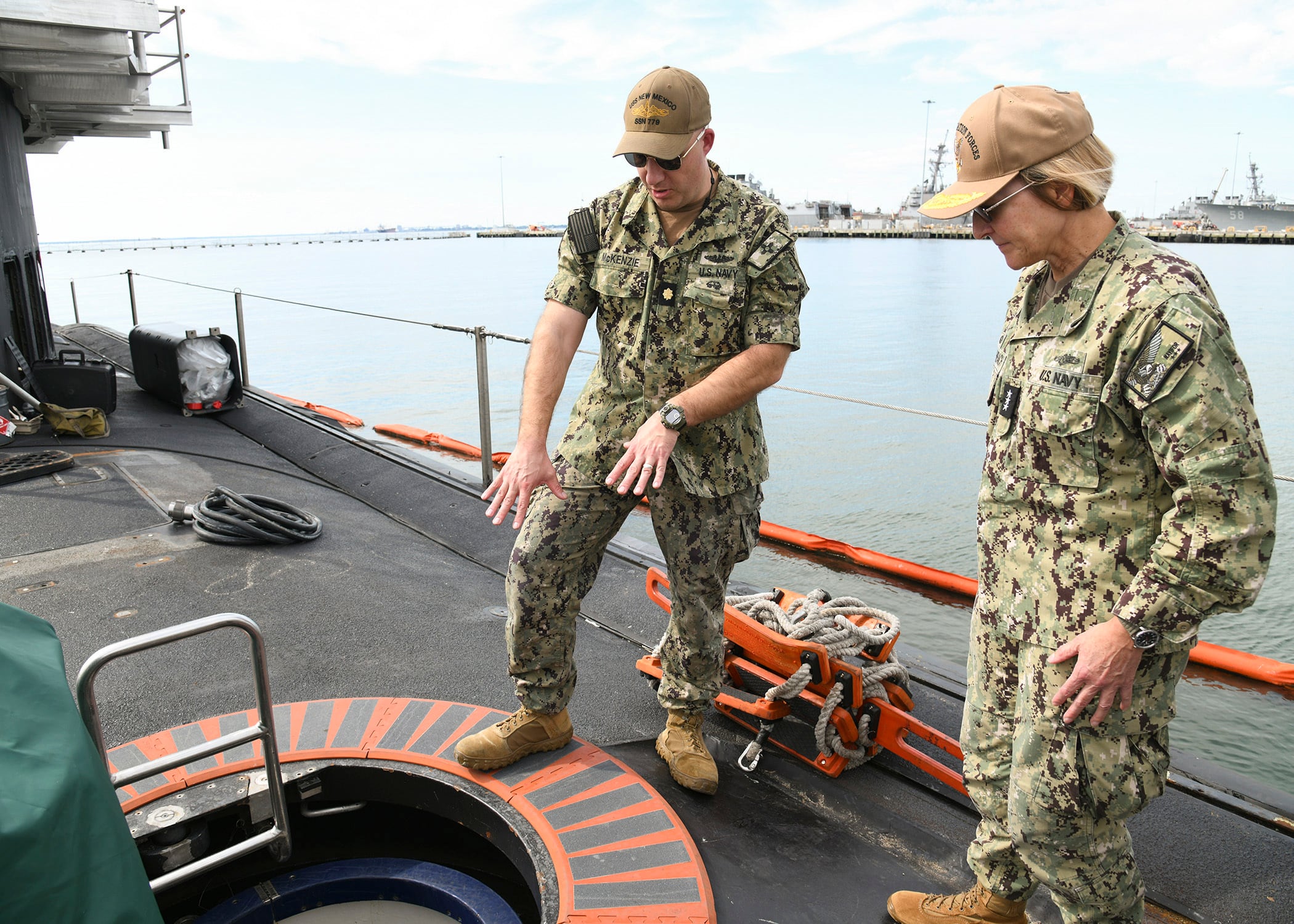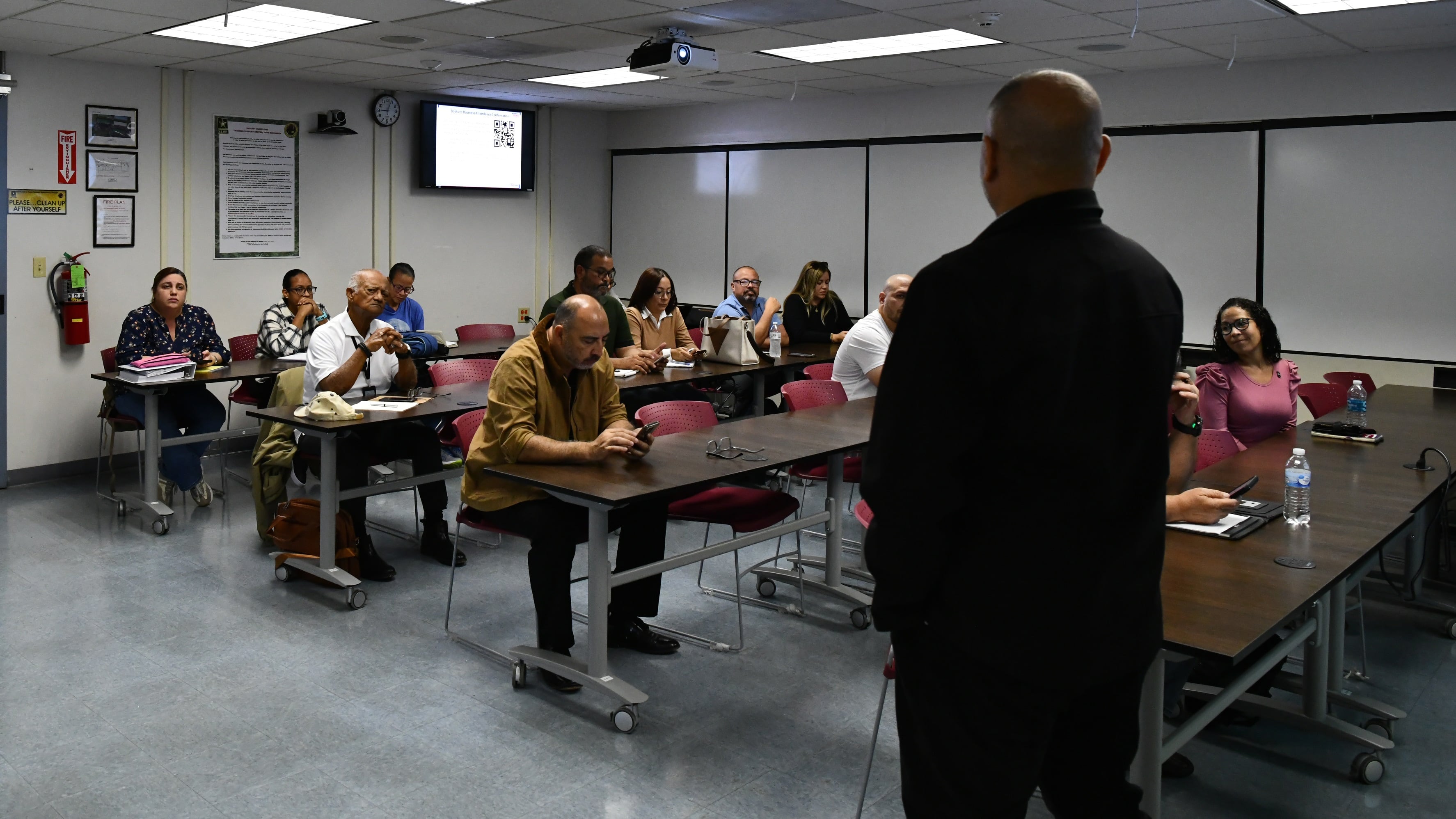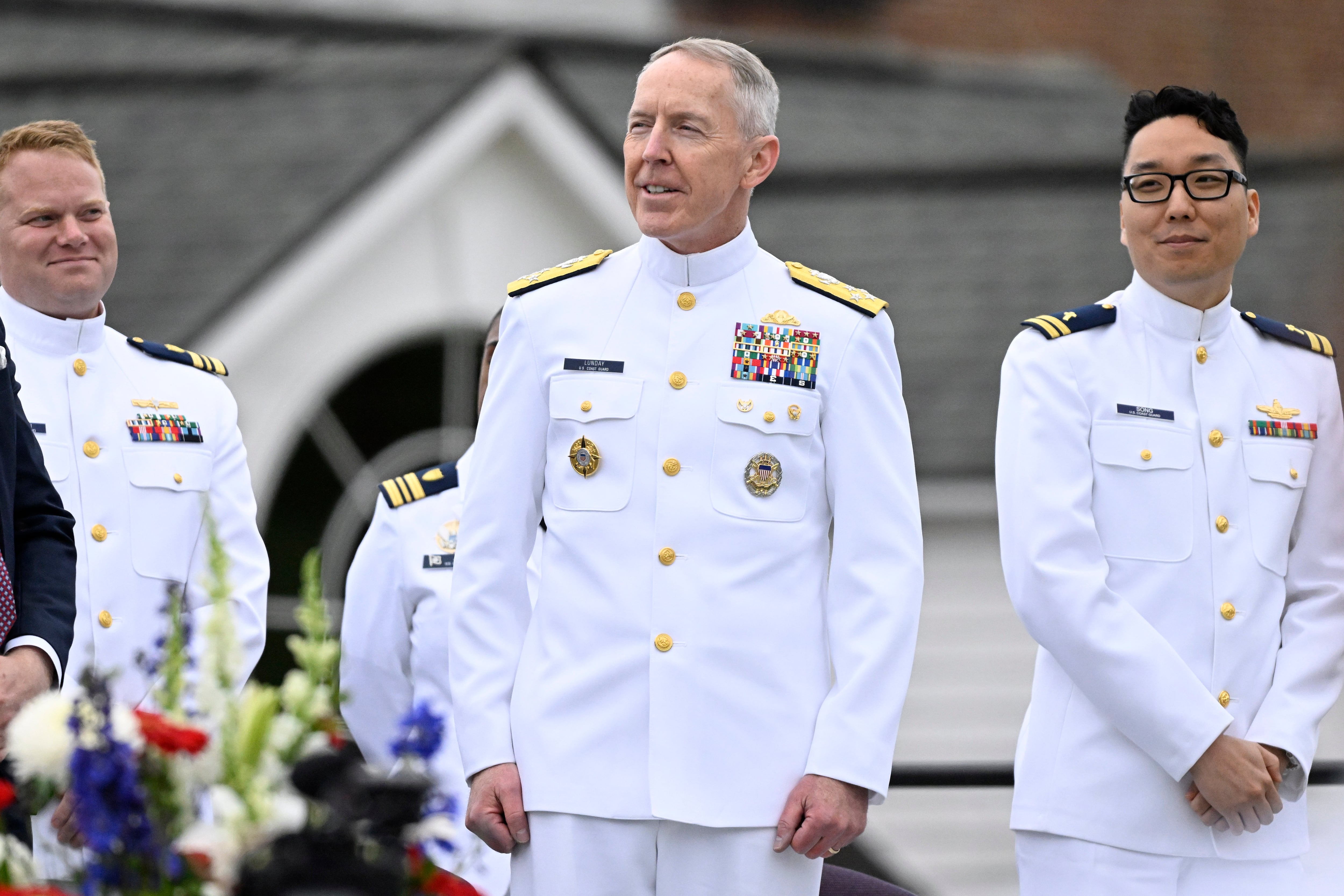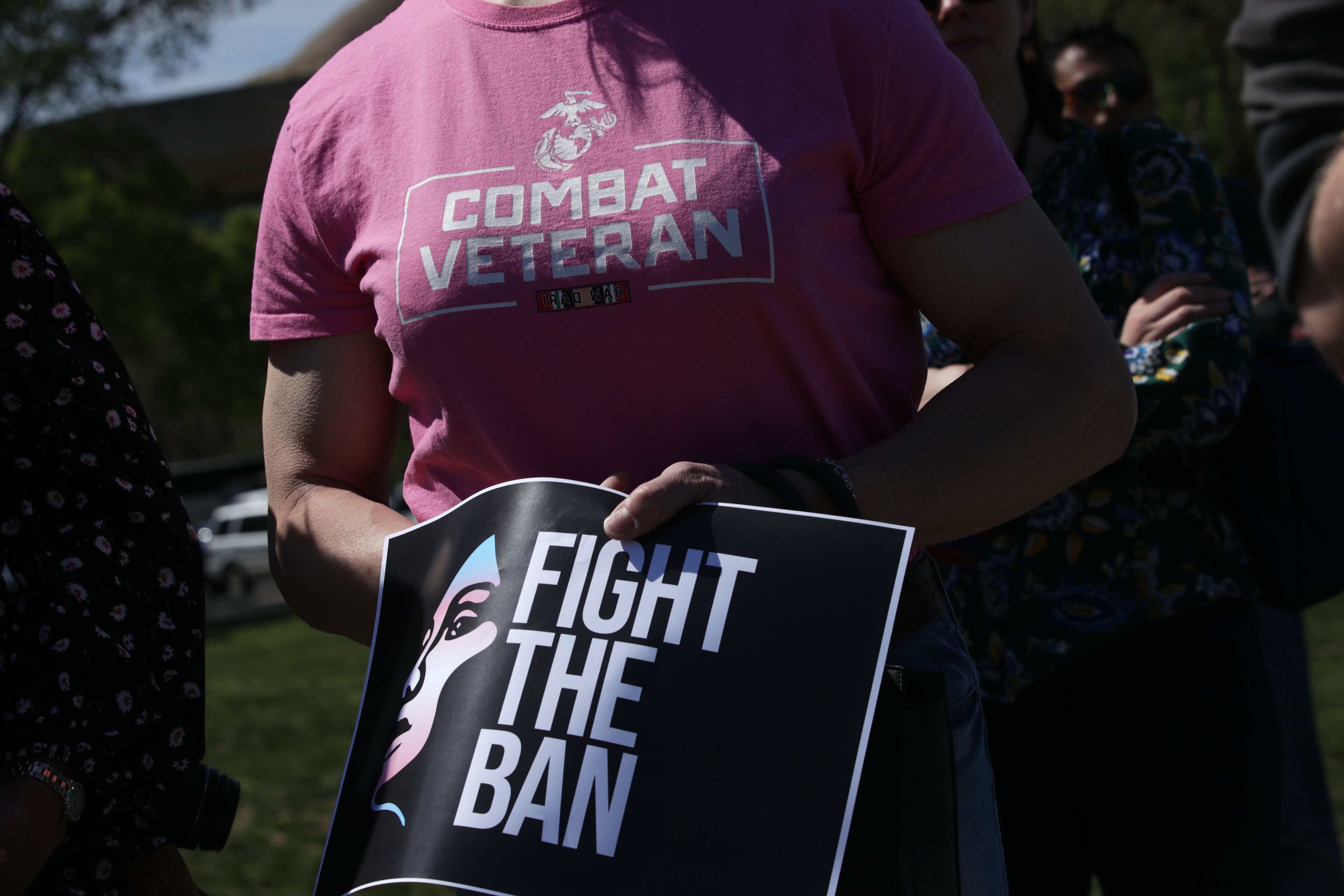SAN DIEGO — As U.S. Naval Information Forces continues to reform how it trains for and carries out its cyber missions, the command expects to announce an enlisted rating name change later this year that better reflects this vital work.
The Navy already has an existing cyber job rating, known as cryptologic technician networks, or CTN, a job that requires cyber skills 93% of the time, the head of Naval Information Forces, Vice Adm. Kelly Aeschbach, told reporters here Wednesday during the annual West naval conference.
But while the command is working to improve the cyber offensive training these sailors receive, plans are also underway to move CTNs out of the cryptologic series and give those approximately 1,900 CTNs in the fleet their own cyber rating.
That new enlisted rating will also align with a new cyber officer designator that is in the works.
Aeschbach said the new cyber rating’s name is still being determined.
“I’m talking to the master chiefs in the rating about what they want the name to be, and it’s pre-decisional, but it will have cyber in its name,” she said.
RELATED

Adding an enlisted rating and officer designator to the existing cadre of cyber warfare engineers and cyber warrant officers will round out the pool of sailors doing such work, she said.
“We’ll have a family now of cyber designators like we do for intelligence, where we have officers and intelligence specialists, cryptologists will still have four other CT ratings that are aligned with them,” Aeschbach said .
The Navy will likely announce the new officer designator this spring, she added.
“On the rating, we’ve already talked to the master chiefs, we’re working on the paperwork required to do the name change, and then on both, we do a report back to Congress about the end of March, just to give them an update on what our plan is and where we’re going,” she said, adding that she is optimistic that they are on the right path for this congressionally directed change.
Aeschbach said the new rating would better reflect the job that CTNs do and the recognition they deserve.
“If you talk to a CTN, I think they were, I don’t want to say offended, but I think they are a little put off by the fact that they are cyber operators,” she said. “And I think they were a little frustrated that there was this perception that there’s not a cyber rating, and they are working really hard at cyber jobs.”
At the same time, the CTN rating is only about 20 years old, and some sailors in that community are understandably “wedded to their badge, their cryptologic history,” Aeschbach said.
“So, I wanted to make sure we embrace them and they have a chance to inform what the badge looks like and that they pick the name, so we get buy-in from all of them,” she said. “There’s rightly a lot of history and passion about ratings.”
Aeschbach said she has conveyed this notion to Congress during discussions as well.
“We just need to be thoughtful about how we embrace the force, because they already are doing really awesome work,” she said.
CTNs perform a variety of computer network operations around the world.
These sailors can deploy at sea in one or two-sailor teams, or work in big facilities that “are normally air-conditioned, well-lighted and completely equipped,” according to the Navy’s CTN page.
A rating name change will also help these sailors better convey what they do to the non-Navy world, Aeschbach added.
“Outside the Navy, you tell somebody that you’re a cryptologic technician networks … that takes a lot of explaining,” she said. “If we come up with a name that more clearly signals what you’re doing, it actually will be good for them professionally, too, in terms of marketability and transition to others jobs.”
Geoff is the managing editor of Military Times, but he still loves writing stories. He covered Iraq and Afghanistan extensively and was a reporter at the Chicago Tribune. He welcomes any and all kinds of tips at geoffz@militarytimes.com.





